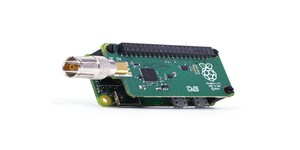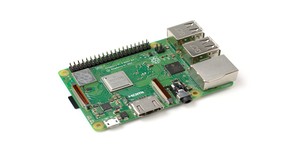RISC OS re-released under an open source licence
October 23, 2018 | 11:51
Companies: #acorn #arm #castle-technology #element-14 #pace #riscos-limited #risc-os-open-limited #softbank

RISC OS, an operating system originally developed by Acorn for its Archimedes family of personal computers, looks set to enjoy a new lease of life with the announcement that it is to be republished under the permissive Apache 2.0 open-source licence.
First released to the public in 1987 under the name Arthur, receiving its rebranding to the current nomenclature in 1989, RISC OS was developed to power the BBC Archimedes family of 32-bit personal computers based around Acorn's ARM architecture - the same architecture now found in billions of devices world wide and under control of Cambridge-based and SoftBank-owned Arm Holdings. Developed over a period of just five months as a stop-gap ahead of the release of a more powerful operating system dubbed ARX - which would, unfortunately for its developers, never see the light of day. While never as popular as Microsoft's Windows, which would soundly thrash the competition to become the de facto standard for personal computing, RISC OS continued to be developed and shipped by its creators until Acorn's demise and rebranding to Element 14 in 1999.
That wasn't the end of the RISC OS story, though: Its efficiency on Arm hardware led to efforts to continue its development, including a deal with set-top-box maker Pace and the the formation of RISCOS Limited, while a separate company called Castle Technology would take over the primary licence from Pace in 2003. The launch of the Raspberry Pi microcomputer finally took RISC OS back from the brink, offering a low-cost device on which the operating system could run, and redoubled community efforts to see it given a wider audience. Those efforts have finally succeeded today, with newcomer RISC OS Developments acquiring the intellectual property from Castle Technology and agreeing to switch from a source sharing licence to a properly open-source licence in partnership with RISC OS Open Limited (ROOL).
'This re-licensing represents the achievement of the primary goal RISC OS Open originally set out to achieve,' explains ROOL's Steve Revill. 'It is a key milestone for an important part of British computing history and the fulfilment of my long-held personal ambition to enable anyone to use RISC OS freely and contribute openly to its future.'
'RISC OS is a great demonstration of how much performance a well-tuned operating system and user interface can wring out of a platform,' adds Eben Upton, co-founder of the Raspberry Pi Foundation. 'Moving to a free open source license should bring a renewed interest to RISC OS.'
The relicensing, which will allow anyone to contribute to the RISC OS project as well as to modify it for personal use or commercial redistribution, has been scheduled for this Saturday, October 27th, to coincide with the RISC OS London Show. More information is available on the RISC OS Open website.

MSI MPG Velox 100R Chassis Review
October 14 2021 | 15:04








Want to comment? Please log in.